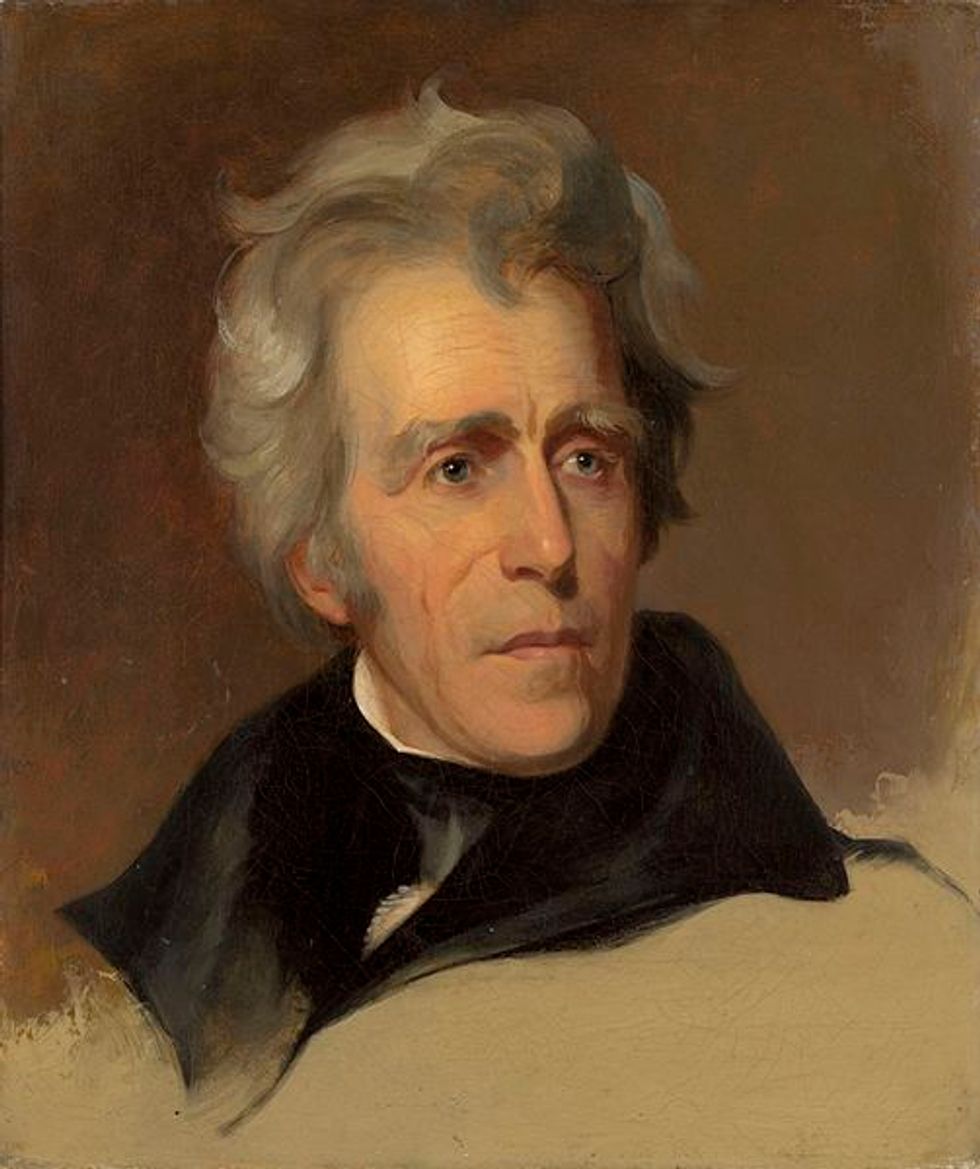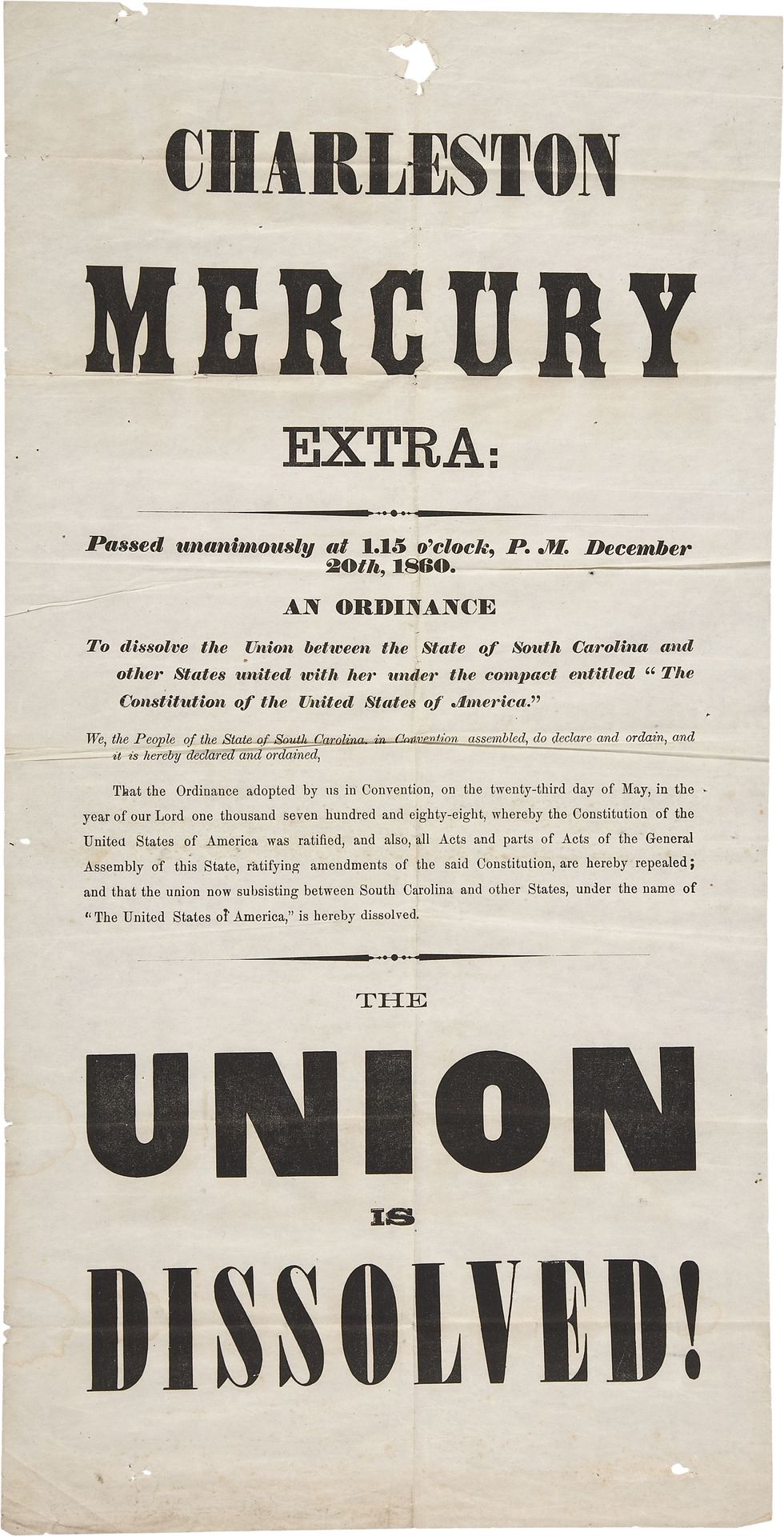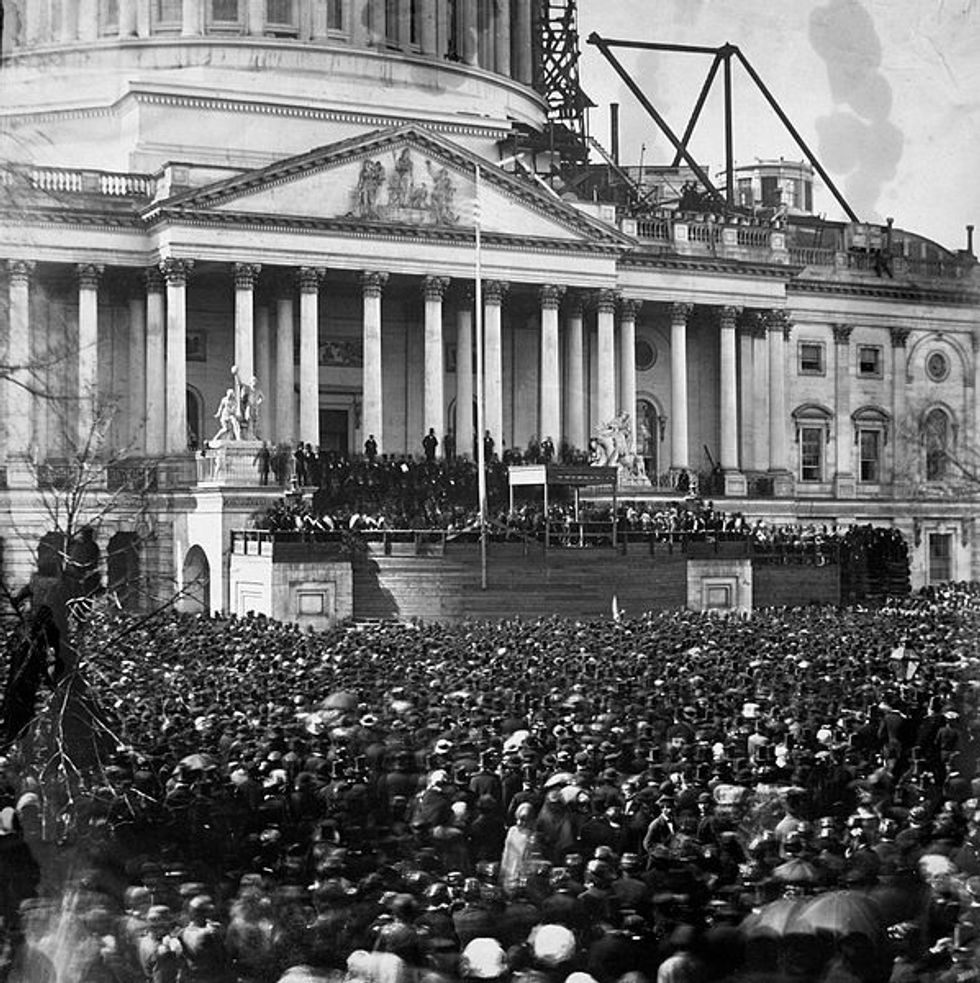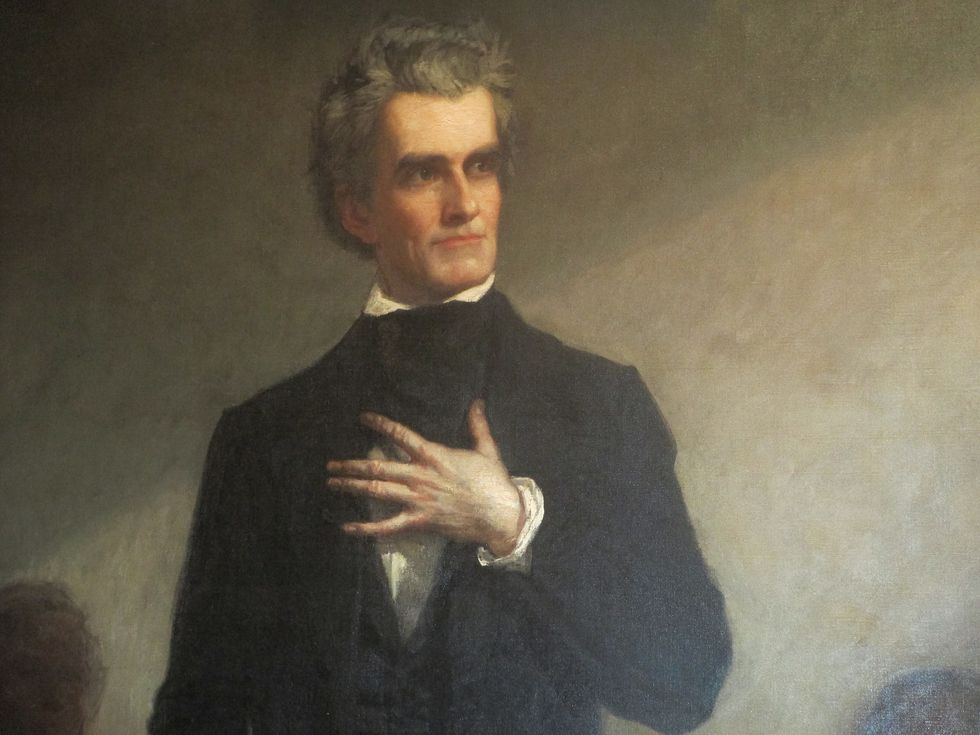Have you ever played Six Degrees of Separation or in some cases Six Degrees of Kevin Bacon? It's when someone gives you the name of two actors or actresses, or Kevin Bacon and an actor/actress, and you try to connect them with their movies in six or fewer moves. For example, Kevin Bacon and Gary Oldman.
Gary Oldman was recently in The Darkest Hour with Ben Mendelsohn, who was in A Place Beyond the Pines with Ryan Gosling, who was in Crazy, Stupid, Love with Kevin Bacon.The same game can be played using slavery and the alternative causes that led to Southern secession and ultimately the Civil War.
One may think that discussing the causes of the Civil War is overdone and surely people know by now or more likely, they don’t care anymore. I would agree, but I follow the Civil War Trust on Facebook. The Civil War Trust posts various articles and quotes pertaining to the Civil War, and one of my favorite things to do is to read the comment section. Even in 2018, people fervently argue that slavery was not the cause of the Civil War, and if they admit that it was, they claim it was not the main cause.
They often post articles found in the dark depths of the internet, which list the various other reasons the Southern states seceded, hoping to end the slavery argument. In a series of articles, I intend on listing the alternate reasons that these Southern sympathizers argue and tie them back to slavery in six or less moves. To keep you interested, I will begin with the most boring cause, tariffs.
In an article titled The Ten Causes of the War Between the States, James W. King lists tariffs as the number one reason for secession. Keep in mind, King’s article is on the website Confederate American Pride, so his opinions may be slightly opinionated towards the South. King argues that the Civil War was inevitable. In fact, he states that a Civil War almost occurred between 1828 and 1832 over a tariff. This statement is correct.

On May 19, 1828, during John Quincy Adams’ presidency, Congress passed a protective tariff designed to help American industry, which was primarily based out of the North. Previously, cheap imported goods were putting northern industries out of business, so the tariff taxed 92% of imports by 32%. Opponents of the tariff, mostly Southerners, called the tariff, the Tariff of Abomination. Southerners detested the tariff because they relied on the imports to supply goods they didn’t produce themselves. Also, the tax on British imports made it harder for the British to buy Southern cotton, which was the South’s primary export. Opposition against the tariff culminated during Andrew Jackson’s presidency with the Nullification Crisis.
In 1832, Jackson signed into law the tariff of 1832, which lowered the tariff of 1828. Although this tariff received more support from the South than the 1828 tariff, the concessions were not enough for South Carolina. On November 4, 1832, South Carolina, led by Jackson’s own vice president, John C. Calhoun, passed an Ordinance of Nullification, which claimed that the tariffs of 1828 and 1832 were unconstitutional and therefore unenforceable. If the federal government sought to enforce the tariffs by force, South Carolina threatened to secede from the Union. Other southern states also considered to secede if force was used. Andrew Jackson and Henry Clay quelled the situation with a Force Bill, with authorized Jackson to use force against South Carolina, and the Compromise Tariff of 1833, which lowered the tariff to South Carolina’s satisfaction. Civil war over a tariff was avoided.

King incorrectly claims that the tariffs and the Nullification Crisis had nothing to do with slavery. Southern states relied on imports because they were only producing cash crops, specifically cotton. What allowed for the southern states to focus on exports for wealth? Slave labor. When the tariff was voted on in the House in 1828, Free States voted 88 to 29 in favor and Slave States voted 17 to 65 against. The lack of votes from slave states is not a coincidence. Tariffs were believed to hurt the cotton industry, and slavery was the backbone of that industry.

Although tariffs almost led to a Civil War in 1832, it was not one of the major causes for secession or the Civil War in 1860 and 1861. All eleven of the southern states that seceded from the Union wrote secession ordinances which listed their reasons for secession. Not one of the eleven states mentioned the tariff as a reason for secession, yet people still try and claim that it was the main reason.
However, one of the documents Abraham Lincoln referenced for his First Inaugural Address was Andrew Jacksons' Proclamation to the People of South Carolina during the Nullification Crisis (John Meacham, American Lion). Even if it was a cause, the tariff affected the Southern economy, which was based on slave labor. The tariff is separated from slavery by only two moves.




















